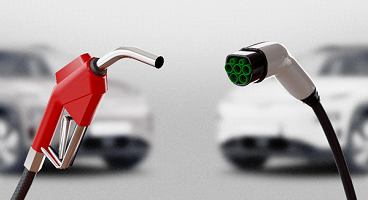Electric Vehicles vs. Hybrids: The Real Future of Sustainable Driving
Are electric vehicles truly the only way forward, or is there a surprising alternative quietly making waves in the automotive industry? Get ready as we, Mineral Circles Bearings, the best Bearing Manufacturer and Supplier, delve into this electrifying debate and explore the surprising alternative paths in the automotive world.
In the constantly changing automotive industry, the future of electric vehicles (EVs) is a hot topic of discussion. While EVs have gained a lot of attention and investment recently, it's important to critically examine if they are indeed the only future for the automotive industry.
The Evolution of Electric Vehicles
Electric vehicles have undoubtedly made impressive progress in the automotive industry. With their promise of zero emissions and advancements in battery technology, EVs have become central to discussions on sustainable transportation. Both governments and automakers have set ambitious electrification goals to cut carbon emissions and combat climate change.
Difficulties Faced by Electric Vehicles
Despite their potential, electric vehicles face several significant challenges:
Charging Infrastructure: Reliable charging stations are still not widely available, particularly in developing regions. This lack of infrastructure causes anxiety for potential EV owners.
High Initial Costs: Electric vehicles typically have a higher upfront cost compared to gasoline or hybrid cars. While this cost difference is expected to decrease over time, affordability remains a barrier for many buyers.
Battery Technology: EV batteries are improving, but they still have limitations regarding range, charging speed, and lifespan. Additionally, the production and disposal of these batteries raise environmental concerns.
Energy Grid Capacity: The widespread adoption of EVs could strain energy grids, requiring significant upgrades to handle the increased demand for electricity. This presents both technical and logistical challenges.
Market Maturity: The EV market is still relatively new. As technology advances and consumers become more familiar with electric vehicles, adoption will likely increase, but it will take time.
Hybrids: A Practical Option
Given the challenges faced by EVs, hybrid vehicles emerge as a viable choice. Combining traditional internal combustion engines with electric powertrains, hybrids offer several benefits:
Cost-Effectiveness: Hybrids are often more budget-friendly than pure electric vehicles, widening accessibility.
Fuel Efficiency: Hybrids boast improved mileage, slashing operational expenses and environmental impact. On average, hybrids achieve around 50 miles per gallon (MPG), significantly outperforming conventional cars at 25 MPG.
Charging Versatility: Unlike fully electric counterparts, hybrids don't rely solely on charging stations, ensuring flexibility in refueling options.
Transition Support: Hybrids act as a bridge to electrification, facilitating a smoother shift for consumers without requiring full commitment to EVs.
The Mechanics of Hybrid Efficiency
Hybrid vehicles are designed to optimize fuel consumption by leveraging both gasoline and electric power. This dual-source approach allows hybrids to capitalize on the strengths of each powertrain. The electric motor can handle low-speed driving and short distances, whereas ICE engines are typically less efficient. Meanwhile, the gasoline engine can take over for higher speeds and longer distances, where it performs more efficiently. This strategic use of power sources significantly reduces the overall fuel consumption.
Our Balanced View
While electric vehicles show significant promise in advancing automotive sustainability, they encounter obstacles. Hybrids offer a pragmatic solution, especially in regions like South Asia, Latin America, and Africa, where charging infrastructure and affordability pose challenges. The automotive industry is evolving, with electric vehicles playing a pivotal role. However, maintaining a balanced outlook is crucial, recognizing that the journey to electrification may take diverse paths, with hybrids playing a vital role.
Food for Thought
Who will emerge as key players in establishing financially sustainable alternatives in the automotive industry? How will the landscape of the automotive aftermarket evolve? Will concerns over the drawbacks of EVs escalate, or will hybrids serve as a solution until the next innovation emerges?
Extreme heat, along with challenges in infrastructure and affordability, significantly impacts EV batteries. Consider these facts:
Extreme heat can slash the lifespan of your EV battery by up to 50%.
Overheated batteries are prone to aging, leading to reduced capacity and slower charging speeds.
Battery overheating can cause damage or pose explosion risks.
Given these challenges, the pathway to the automotive future appears to be hybrid. Mineral Circles Bearings, the best bearing supplier in UAE, Middle East & Africa remains committed to providing tailored aftermarket solutions for the Middle East and Africa, ensuring we stay ahead of the curve.

Comments
Post a Comment